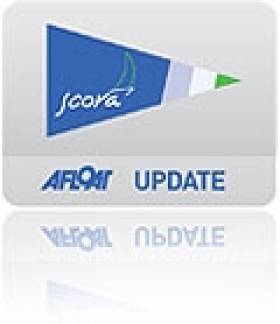Displaying items by tag: Ronan Enright
New SCORA Commodore Appointed at Kinsale AGM
#scora – Royal Cork Yacht Club's Ronan Enright was elected Commodore of the South Coast Offshore Racing Association (SCORA) at the cruiser racing association's agm at Kinsale Yacht Club at the weekend writes Claire Bateman.
Following two years at the helm of SCORA the very popular and hard working Vinnie O'Shea RCYC stepped down as SCORA Commodore and Ronan Enright of RCYC, proposed by the outgoing Commodore and seconded by John Stallard of KY was elected This was followed by the election of the three class captains resulting as follows: Class 1 Sean Hanley RCYC, Class 2 Pat Salter KYC and Class 3 Kieran O'Connell RCYC. The new Commodore then outlined the structure of SCORA and went through the programme for 2014.
The ICRA item on promotion of crew training and how to increase participation in cruiser racing was dealt with in a very professional manner by Denis Kiely who gave what can only be described as an impassioned presentation on the subject. This was listened to with great intensity by the large attendance and responded to with views from the various clubs. The study on this item is very much ongoing and ICRA will publish more detail as they study the matter and firm up on plans.
The attendance then enjoyed a slide show presentation and complimentary finger food before the presentation of the prizes.
The meeting was very well attended with representatives from Clubs all over the south coast with strong contingents from Waterford, Schull, Cove SC, Kinsale YC and of course RCYC and it was very heartening to see the interest displayed on all sides. SCORA is alive and well and new Commodore Enright is not about to delay as he has already announced plans to get the show on the road by holding a meeting very quickly with the Class Captains to get plans moving for 2014.





























































